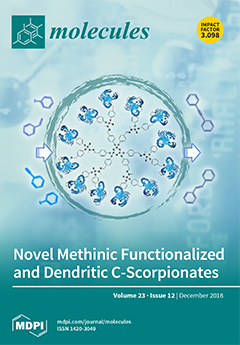Open AccessArticle
Resveratrol-Induced White Adipose Tissue Browning in Obese Mice by Remodeling Fecal Microbiota
by
Weiyao Liao 1,2,†, Xiaohan Yin 1,2,†, Qingrong Li 1,2, Hongmin Zhang 1,2, Zihui Liu 1,2, Xinjie Zheng 1,2, Lin Zheng 1,2 and Xiang Feng 1,2,*
1
Department of Nutrition, School of Public Health, Sun Yat-sen University; Guangzhou 510080, China
2
Guangdong Provincial Key Laboratory of Food, Nutrition and Health, Guangzhou 510080, China
†
Both authors contributed equally to this work.
Cited by 52 | Viewed by 8038
Abstract
Promoting the browning of white fat may be a potential means of combating obesity. Therefore, in this study, we investigated the effect of resveratrol (RES) on the body weight and browning of white fat in high-fat diet (HFD)-induced obese mice and the potential
[...] Read more.
Promoting the browning of white fat may be a potential means of combating obesity. Therefore, in this study, we investigated the effect of resveratrol (RES) on the body weight and browning of white fat in high-fat diet (HFD)-induced obese mice and the potential associated mechanism in vivo. Eight-week-old male mice were randomized to receive different treatments: (1), chow without any additional treatment (chow); (2), chow plus 0.4% resveratrol (chow-RES); (3), HFD without any additional treatment (HFD); and (4), HFD plus 0.4% resveratrol (HFD-RES). After 4 weeks of feeding, additional 8-week-old male recipient mice were randomly allocated to the following 4 treatments: (5), HFD and received feces from chow-fed mice; (6), HFD and received feces from chow-RES-fed mice; (7), HFD and received feces from HFD-fed mice; and (8), HFD and received feces from HFD-RES-fed mice. RES treatment significantly inhibited increases in fat accumulation, promoted the browning of white adipose tissue (WAT) and alleviated gut microbiota dysbiosis in HFD-fed mice. Subsequent analyses showed that the gut microbiota remodeling induced by resveratrol had a positive role in WAT browning, and sirtuin-1 (Sirt1) signaling appears to be a key component of this process. Overall, the results show that RES may serve as a potential intervention to reduce obesity by alleviating dysbiosis of the gut microbiota.
Full article
►▼
Show Figures






